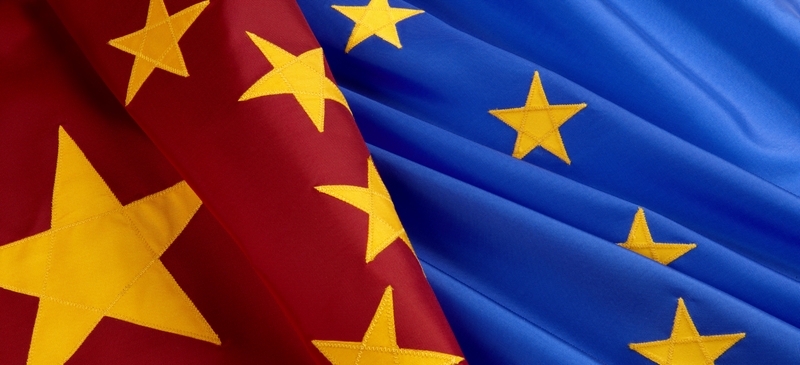
The lure of Beijing
China's foreign policy establishment likes the idea of the EU. In Beijing, senior ministers turn up to speak at conferences with titles such as "The Future of EU-China Strategic relations". In Beijing's think-tanks, hundreds of researchers display an expertise on the union and its arcane procedures that few in Europe could match. The Chinese believe that a "multipolar" world is inevitable and desirable, and that China and the EU are two emerging poles - and rising powers - within it.
Given this enthusiasm for the EU, the recent flip-flopping by Brussels over the arms embargo on China has left a bitter taste in Beijing. Last December, the EU said it would lift the embargo imposed after the Tiananmen Square bloodshed in 1989. But in March the EU changed its mind, largely because of US pressure. With the British soon to take over the EU presidency, there is little prospect of the embargo being lifted this year. The Chinese have learned that EU foreign policy has not yet freed itself of the apron strings of the US.
China's desire to see the embargo scrapped is understandable. The EU applies arms embargoes only to Burma, Congo, Liberia, Somalia and Zimbabwe, which are failing states or countries with (arguably) worse human rights records than China. EU-China trade rose to euros 175bn (pounds 120m) last year, with the EU replacing the US as Beijing's biggest trading partner. China claims it does not want to buy much in the way of European arms - Russia supplies most of the warplanes and submarines it needs - but that it cannot develop a "strategic partnership" with the EU if stigmatised in this way.
Viewing China as the El Dorado of the 21st century, the French president, Jacques Chirac, and the German chancellor, Gerhard Schroder, campaigned hard last year to overturn the EU arms sales ban. Their purpose was not to sell weapons, but other things. Human rights NGOs argued for keeping the ban. But the British government worried that the UK's commercial interests in China would suffer if it blocked lifting the embargo. Last December, EU leaders reached a consensus that it would go in the first half of this year.
At the same time, in an attempt to reassure those worried by the prospect of China buying advanced weaponry, they agreed to strengthen the EU code of conduct on arms sales. This non-binding code requires each government to consider a set of criteria - including human rights in the country concerned, and whether the weapon could be used for internal repression or external aggression - before approving a sale.
The EU had stumbled towards lifting the embargo without thinking through the consequences. It did not consider what it might ask in return of the Chinese. Nor did it think much about how the US would react. That question has been answered: very badly. Ignoring European assurances that the removal of the embargo was not about selling weapons, Americans claimed it would upset the strategic balance in east Asia.
Many of them fear China's growing economic weight will one day translate into military muscle. They worry that Europe will sell the kind of hi-tech information and communications technology that Russia cannot offer. In fact, the arms embargo covers neither dual use nor non-lethal equipment such as radars. Nevertheless, many Americans say removing the embargo would make it harder for them to defend Taiwan against a Chinese invasion.
This year senior congressmen said that if the embargo went they would cut off technology transfers to Europe's defence industry and apply sanctions to its companies. BAE Systems and Rolls-Royce, which have extensive businesses in the US, became alarmed. So the British government had second thoughts about lifting the embargo.
China's behaviour also contributed to the EU shift. It did nothing to placate the EU on human rights, failing to fulfil a promise to ratify the International Covenant on Civil and Political Rights (ICCPR). And in March, the National People's Congress passed the Taiwan secession law, effectively threatening military action if the island moved towards independence.
The twists and turns of this tale have been embarrassing for those who would like to see a more effective and coherent EU foreign policy. In the longer run, the Europeans need to lift the embargo. Whatever the faults of the Beijing regime, its foreign policy is generally responsible and it is a crucial partner for the EU in areas ranging from the Galileo satellite positioning system to higher education. But the EU does not have to give away the embargo for free. It could ask China to ratify the ICCPR, release the remaining Tiananmen Square protesters and allow the International Red Cross access to its prisons.
Europeans need to think through not only the commercial opportunities of China's rise, but also the strategic implications. They could discuss their China policies with the US, for example, so that they could together draw up a list of sensitive technologies that should not be exported without close consultation. But the Europeans must also define their own interests in Asia.
Meanwhile, China's leaders, though disappointed by Europe's prevarication over the embargo, have taken a long-term view about the EU's development and remain broadly positive. They expect the euro to limit the dollar's dominance of international financial flows. They also believe that China and the EU share a common commitment to multilateral and rules-based global governance, and a common interest in preventing US hegemony.
